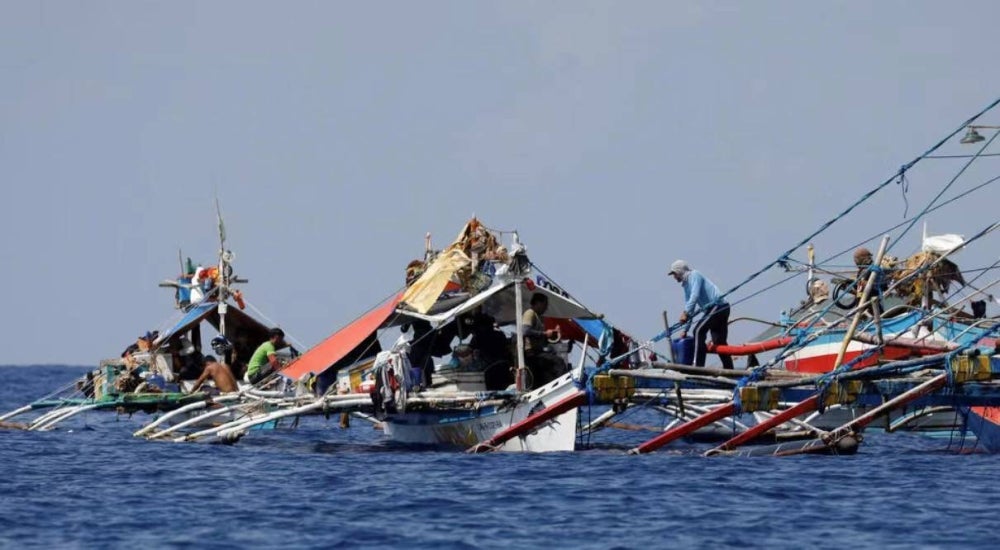Japan should halt plans to release nuclear wastewater into sea
ZALEHA GHANI12 Jun 2023 06:28pm

Japan's decision to release contaminated water from the damaged Fukushima nuclear powerplant has raised concerns over the impact on marine life and fishing communities. Pix from Penang Inshore Fishermen‘s Welfare Association (PIFWA)
SHAH ALAM - As the world celebrated World Oceans Day on June 8 aimed to promote protecting our waterways for future generations, there are concerns over Japan’s plans to release millions of tonnes of water contaminated during the Fukushima earthquake in 2011 into the Pacific Ocean.
The Japanese government has insisted on continuing its plan to dump Fukushima nuclear wastewater into the sea starting this summer.
As a signatory to the UN Convention on the Law of the Sea (UNCLOS), Japan is responsible and obliged to preserve the marine environment. In fact, since 2013, the Japanese government has submitted five drafts on handling nuclear wastewater.
Unfortunately dumping the contaminated water into the Pacific has been identified as the cheapest solution.
Shaun Burnie, Greenpeace's senior nuclear expert for the Japan office has pointed out that in addition to tritium, many radioactive substances still cannot be filtered, such as carbon-14, with a half-life of 5,000 years.
Its research points out that radioisotopes in nuclear waste are difficult to clean up, especially on the Fukushima coast with the world's strongest ocean currents, radioisotopes can be spread to more than half of the Pacific Ocean within 57 days and after10-years, it will spread globally.
Japan's plan to dump nuclear waste into the high seas has drawn much opposition from many quarters. The Indonesian Forum for the Environment, Wahana Lingkungan Hidup Indonesia (WALHI), also strongly rejected Japan's plan.
WALHI's National Executive Energy and Urban Campaign Manager, Dwi Sawung, worries about the long-term effects of dumping nuclear waste containing radioactive substances, particularly the potential impact on the marine food chain.
"Because we (WALHI) don't know yet, what the long-term effects will be in the food chain cycle. That's the worry," explained Dwi Sawung.
Fish in the sea are contaminated when they ingest radioactive substances.
Dwi also added the direct impact humans receive if they come into contact with the content of these radioactive substances. Harmful radioactive substances will attack the endocrine glands, disrupting the immune system among other negative health effects.
Universitas Airlangga (Unair) Koesrianti explained why Japan's plan drew opposition from many parties. According to Koesrianti, nuclear waste should not be discharged into the sea as the wastewater contains dangerous active toxins.
Information published by Japan on the content of radioactive waste is ambiguous and has not been verified by third parties. There are claims that it is just waste removed from radioactive substances.
Koesrianti also said Japan should provide information in proportion because Japan still needs to publish the detailed waste content to dispose of.
Meanwhile the Penang Inshore Fishermen‘s Welfare Association (PIFWA) held a small event themed “Return to the Sea”, in conjunction with World Oceans Day asking the Japanese government not to dump nuclear reactor coolant waste into the Pacific.
"We are from Malaysia, waste disposal into the sea will damage ecosystems in the Pacific Sea," said the organiser.
According to them, careless hazardous waste disposal has occurred in Minimata in Kumamoto Prefecture, which resulted in children being born with disabilities and the death of residents due to exposure to toxic heavy metal waste in the 1950s, which became known as Minamata disease.
Therefore, the planned disposal of Fukushima nuclear reactor coolant waste into the Pacific must be stopped because it will be very dangerous for human safety and marine ecosystems.
PIFWA fishermen hope that Malaysia, as a maritime country, will take a stand by raising objections and rejections to the Japanese government's plan. The action against waste disposal will continue unless there is firm action from the government of Malaysia and other Asean governments.
"Therefore, the planned disposal of Fukushima nuclear reactor coolant waste into the Pacific Ocean must be stopped and the Malaysia government must issue a firm statement as soon as possible," a fisherman at the event site said.
“Has Fukushima's nuclear waste been processed to reduce environmental pollution? The emergence of negative reactions from within Japan itself is a signal that Fukushima nuclear waste is indeed dangerous."
We should not mistake Japan for being too far away for nuclear waste water to drift to us. The German Institute for Marine Science pointed out that the world's strongest ocean current along the coast of Fukushima will spread radioactive material to most of the Pacific. Greenpeace experts point out that the carbon-14 contained in Japan's nuclear wastewater is dangerous for thousands of years and could cause genetic damage.
As a major Asean country, Malaysia should be the first to guard against Japan's irresponsible behaviour.
Local fishermen, together with fishermen from Japan's Fukushima and South Pacific countries, should pressure the Japanese government to shelve its nuclear wastewater discharge plan, assume its responsibility as a major country, make experimental data open and transparent, and provide appropriate subsidies and risk compensation to the fishing development of Pacific rim countries.
Japan provides 50 billion yen in subsidies to its fishermen, and the two Korean fishing associations are demanding that Japan compensate 100,000 won. But compensation is not what we want or what we want to see, we just want to give ourselves to our children and grandchildren peace of mind.
Zaleha Ghani is with Penang Inshore Fishermen‘s Welfare Association (PIFWA).
The views expressed in this article are the author's own and donot necessarily reflect those of Sinar Daily.










